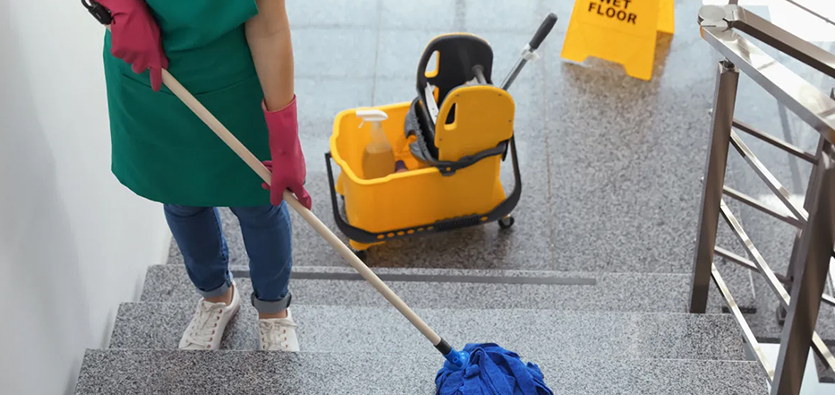Industrial cleaning supplies refer to products and equipment specifically designed for cleaning and maintaining large commercial and industrial spaces. Typical industrial cleaning supplies may include degreasers, absorbents, safety gear, cleaning tools and equipment, and industrial-strength detergents.
Degreasers are chemicals designed to break down and remove grease, oil, and other stubborn industrial contaminants. For dealing with spills of oil, chemicals, or other substances, absorbents like pads, socks, and booms are commonly used. Janitorial supplies are items such as industrial-strength brooms, mops, and trash bags designed for heavy use in large spaces.
Dos:
Using any industrial cleaning supply requires careful handling to ensure safety and effectiveness. Here are some dos to keep in mind:
- Read and follow instructions
Reading and following instructions is a critical step when working with industrial cleaning supplies. Pay attention to hazard symbols and codes on product labels. These symbols provide quick information about the potential risks associated with the product.
If the instructions provide a sequence of steps, follow them in order. Some products require a specific order of application for optimal results.
- Store properly
Proper storage of industrial cleaning supplies is essential to maintain their effectiveness and prevent accidents. Store different types of cleaning chemicals separately to prevent potential chemical reactions. Group chemicals based on their compatibility to avoid cross-contamination.
Store commercial cleaning product in a cool, dry place. Some chemicals may have specific temperature requirements for storage, and exposure to extreme temperatures can affect their stability. Ensure that storage areas are secure and inaccessible to unauthorized personnel. That helps prevent accidental exposure and misuse of cleaning supplies.
Clearly label all containers with the name of the product, hazard warnings, and any necessary instructions. That is crucial for quick and accurate identification. Store cleaning supplies in their original containers whenever possible. Original packaging often provides essential information about the product and its proper usage.
- Dispose of waste properly
Adhere to local, regional, and national regulations regarding the disposal of industrial cleaning waste. Familiarize yourself with the specific requirements for different types of waste.
Segregate different types of waste based on their characteristics. Separate hazardous waste from non-hazardous waste to ensure proper disposal methods are employed.
Clearly label waste containers with appropriate information, including the type of waste, potential hazards, and any special handling instructions. That aids in safe and efficient disposal.
Provide training to employees on proper waste disposal procedures. That includes information on how to identify hazardous waste and the importance of following disposal guidelines.
Don’ts:
Below are some important “don’ts” to remember when using or in charge of cleaning supplies:
- Mixing chemicals
Avoid mixing different industrial office cleaning supplies unless specified by the manufacturer. Some combinations can produce harmful reactions or release toxic gases. Read and understand the labels and safety data sheets (SDS) of each chemical before use. Pay attention to information about chemical compatibility and potential reactions.
- Incomplete rinse
Incomplete rinsing of surfaces after using cleaning products can lead to various issues, including health risks and damage to materials. Rinse surfaces thoroughly with clean water or an appropriate rinsing agent.
- Storing near food or medications
Avoid storing cleaning chemicals near medications or other sensitive materials. Keep cleaning supplies away from areas where food is stored or prepared. Store commercial housekeeping supplies at a safe distance from food storage areas, kitchen utensils, and medications. Physical segregation helps prevent accidental contamination.
Store cleaning products in cabinets, lockers, or storage spaces specifically designated for them. That adds an extra layer of protection and prevents direct contact with food or medications.
- Don’t neglect ventilation
Many industrial cleaning agents release fumes that can be harmful if inhaled. Ensure proper ventilation in the cleaning area by opening windows or using exhaust systems to minimize exposure.
- Don’t leave chemicals unattended
Always supervise the use of industrial cleaning supplies, especially if others are using them. Leaving chemicals unattended can lead to accidents or misuse.
By following these dos and don’ts, you can help ensure the safe and effective use of industrial cleaning supplies in your workplace.








